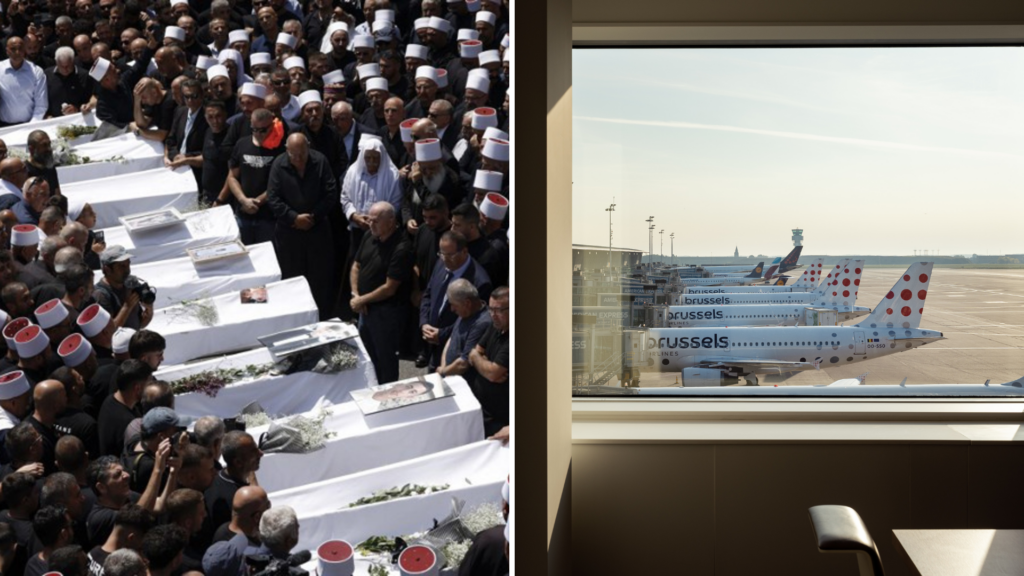Belgium's Foreign Office has reiterated that it advises against travelling to Israel, Jerusalem, Palestinian territory and Lebanon. The travel advice was repeated partly in response to the recent rocket attack in the Israeli-occupied Golan Heights.
"The Middle East region is volatile. Crises are occurring, including rocket launches between Gaza, southern Lebanon, Syria and Israel," the travel advice from the Foreign Affairs Ministry read. All Belgian citizens are advised not to travel to Israel, Jerusalem, the Palestinian territories and Lebanon.
The Ministry repeated this message following Saturday's attack on a football field in Majdal Shams, in which 12 young people were killed. Israel attributed the attack to Lebanon's Shiite militia Hezbollah. While the group denied responsibility, Israel responded with retaliatory strikes in Lebanon. Belgians who are still in Lebanon have also been asked to leave.
"The fact that we are asking Belgian citizens to leave Lebanon is not new advice; it has been in place since late 2023," Foreign Affairs spokesperson Wouter Poels told The Brussels Times. "There are still several Belgians based in Lebanon who want to stay there. The repeated travel advice is in place for good reason."
Those who remain in the region are asked to be vigilant and to keep an eye on possible escalations. While Israeli airstrikes have mainly focused on areas in southern Lebanon where Hezbollah operates, other parts of the country have also been targeted. The travel advice therefore applies to the whole country.
Advice, not a ban
Despite advising against travelling to the country, flights to and from Israel remain popular due to the large Jewish community in Belgium. At the beginning of the conflict in October, Brussels Airlines temporarily suspended flights to Tel Aviv. Since January 2024, however, flights by its sister airlines (Lufthansa, Austrian and Swiss) have become available again.
Brussels Airlines also relaunched flights to the Israeli city on 24 March, now flying between Brussels and Tel Aviv five times a week (six times from September). The flights to Tel Aviv are usually quite full.
"As long as our services continue to assess the situation as safe and there is demand, we will continue to offer this flight," Brussels Airlines spokesperson Nico Cardone told The Brussels Times. "If the situation on the ground changes, we will of course review it immediately. For example, Lufthansa Group has temporarily suspended flights to Beirut."
Related News
- From refugee to Belgian: The long road to nationality and belonging
- 290 balloons in Brussels to urge political leaders to take action in Gaza
Poels stressed that the travel advice is in place to sensitise Belgians, but they cannot be banned from travelling to these destinations. However, when Belgian citizens travel to an area that Foreign Affairs advises against, they cannot claim consular assistance.
"The travel advice is clear enough and should be followed up as much as possible. This is about people's safety," Poels said. "It is a personal freedom, but with freedom also comes responsibility."
The ministry confirmed that there are currently around 1,850 Belgians domiciled in Lebanon, while some 230 indicated they were in the country on the Foreign Affairs' Travellers Online platform.
Cardone noted that Brussels Airlines' passengers are not just Belgian tourists, but people from all over the world. "Advice from other governments may vary and we also carry people coming to Europe from Israel or travelling on to Africa or the United States. Therefore, it is up to travellers themselves to find out what travel advice their government gives about a particular destination and make their own assessment of whether a trip is opportune."

